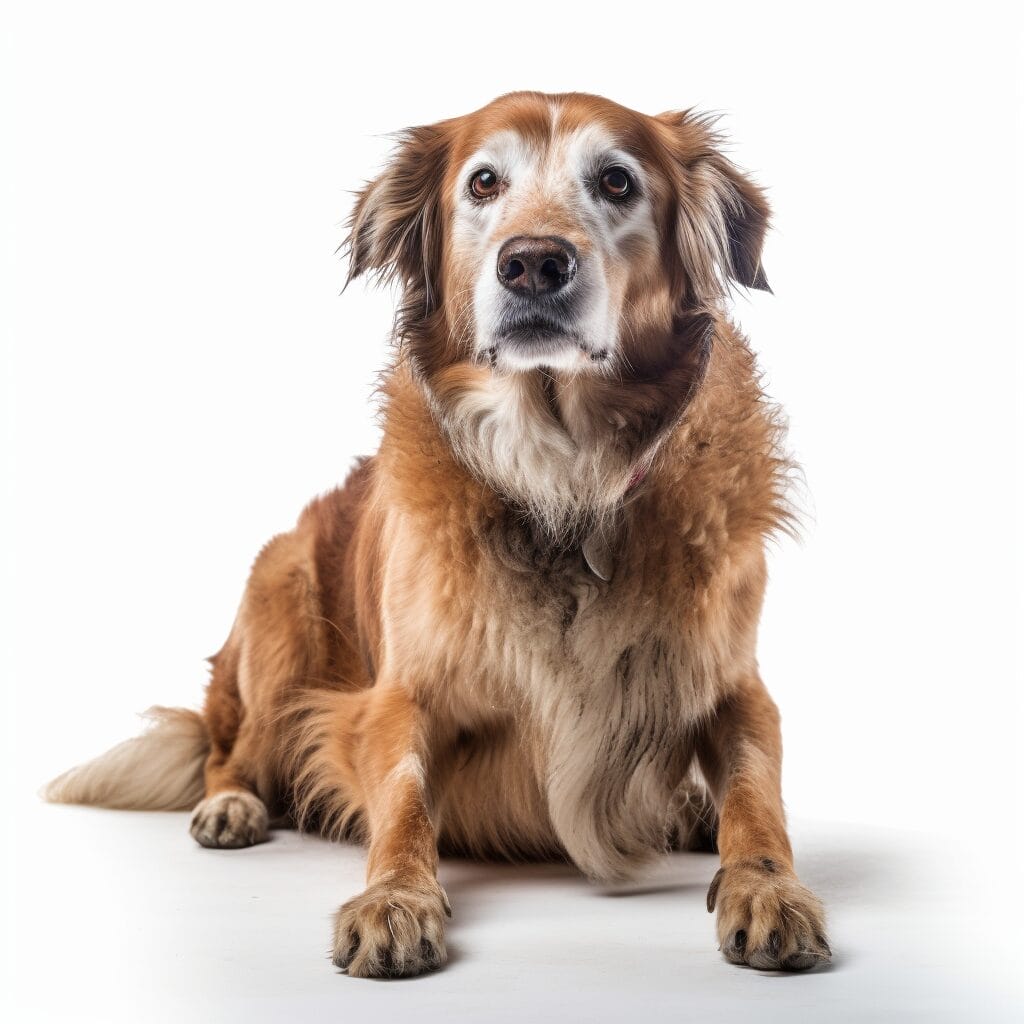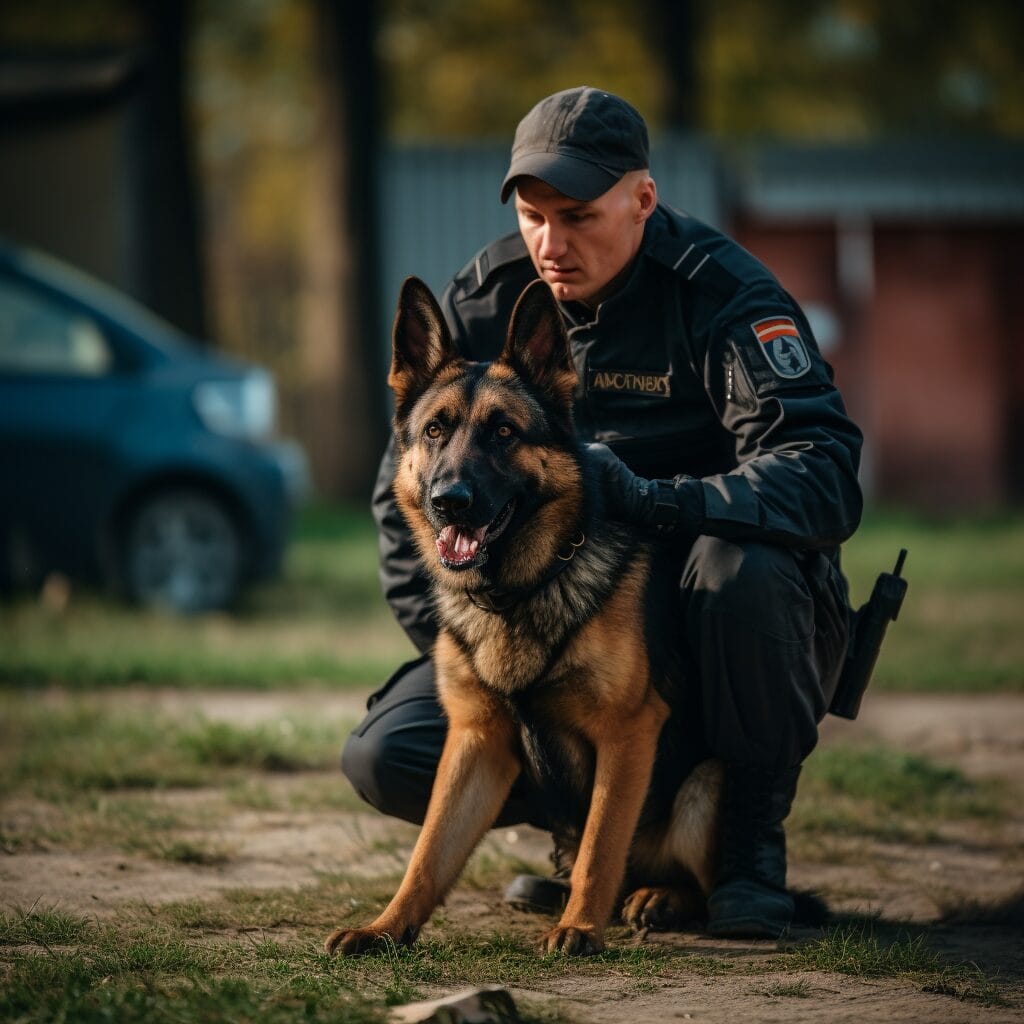As our furry friends age, their nutritional needs evolve. One common question among pet parents is, “Do senior dogs need senior dog food?” Understanding the dietary requirements of aging canines is crucial to ensuring their well-being in their golden years. We’ll also delve into the key factors that influence a senior dog’s dietary needs, shedding light on what makes senior-specific formulas beneficial for aging pups and adult dogs.
Do Senior Dogs Need Senior Dog Food
Understanding the Basics of Senior Dog Food
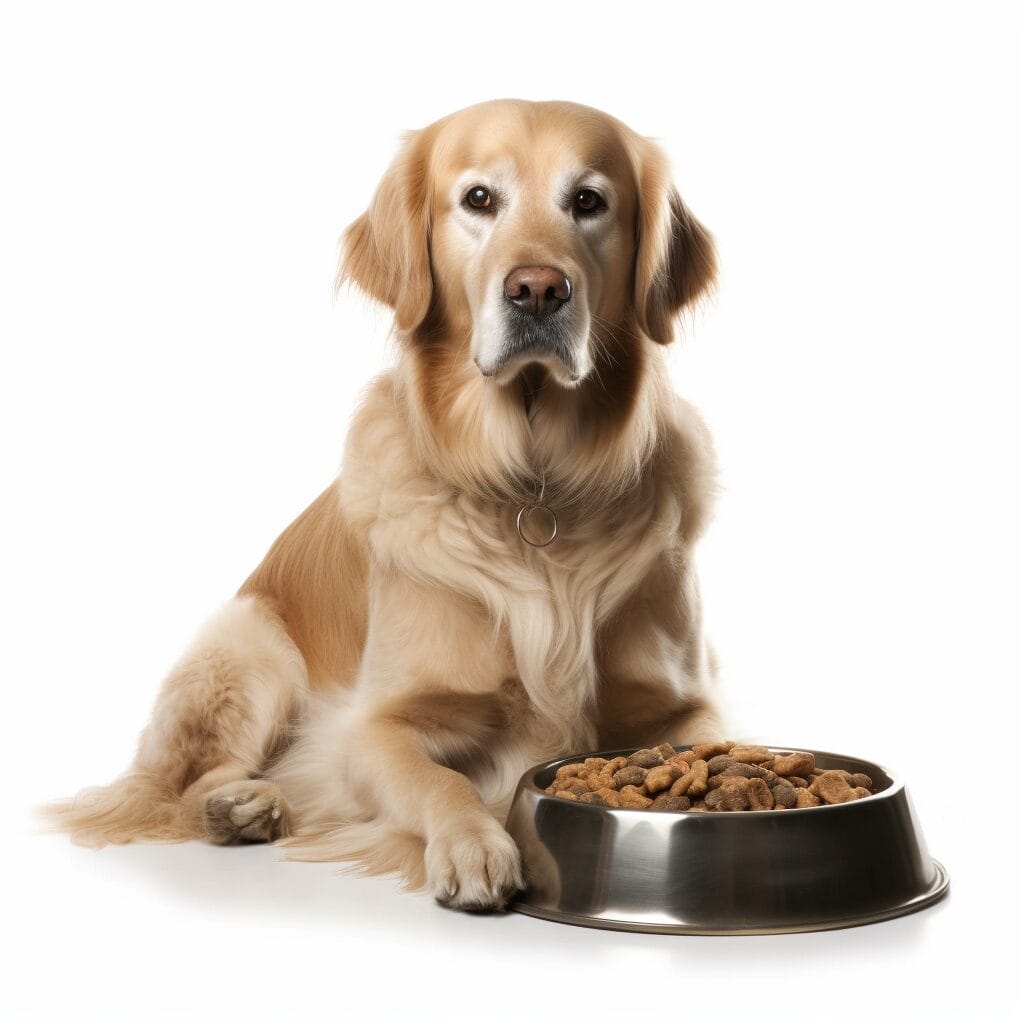
Special Formulation
Senior dog food is specifically designed to cater to the changing needs of aging dogs, diet change, vet, added ingredients. It addresses various issues that become more prevalent as dogs grow older, such as joint health, digestion, weight management, and dietary needs. Unlike regular adult dog food, senior dog food contains specific nutrients tailored to support these dietary needs.
As dogs age, their bodies undergo changes that can affect their overall health. For example, adult dogs may develop arthritis or other joint problems which require additional support in their diet. Senior dog food often includes ingredients like glucosamine and chondroitin to promote joint health and alleviate discomfort associated with aging.
Nutritional Differences
The nutritional content in senior dog food differs from that found in regular adult dog food. Older dogs generally have lower energy levels and slower metabolisms compared to younger ones. As a result, senior dog foods are typically lower in calories but higher in fiber to aid digestion and prevent obesity.
Furthermore, senior dogs may also benefit from increased levels of certain vitamins and minerals like antioxidants for immune system support or omega-3 fatty acids for coat and skin health maintenance. These adjustments help address the specific needs of older dogs while ensuring they receive adequate nutrition tailored to their age-related requirements.
Key Nutritional Differences in Senior Dog Food
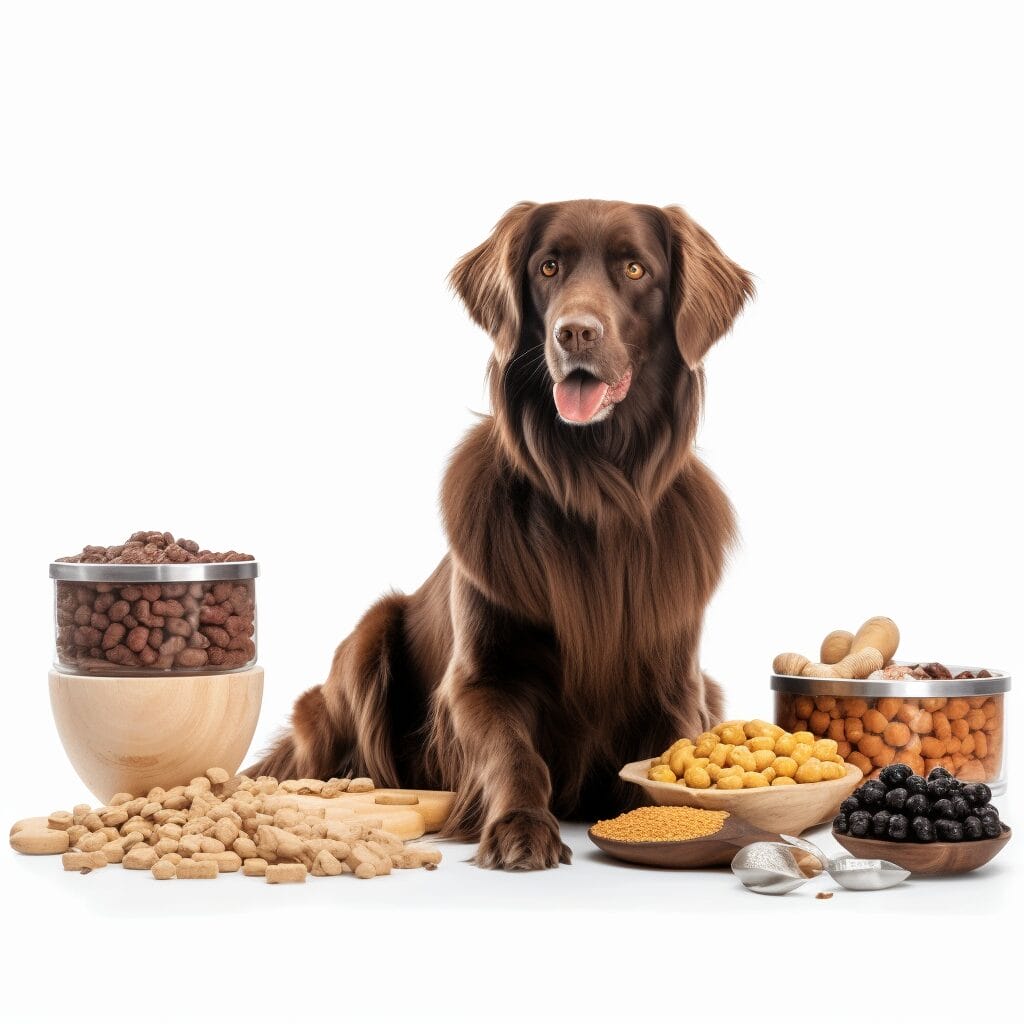
Lower Caloric Content
Senior dog food is formulated with lower calories to accommodate the decreased activity levels commonly seen in older dogs. As dogs age, their energy requirements decrease, and feeding them the same amount of food as when they were younger can lead to weight gain. This lower caloric content helps prevent obesity and related health issues, such as joint pain or diabetes.
Senior dog food often contains higher levels of certain vitamins and minerals essential for overall health support. For example, it may have increased amounts of antioxidants like vitamin E to combat cell damage caused by free radicals. These additional nutrients help support the immune system and promote healthy aging in senior dogs.
Adjusted Protein and Fat Content
Another key difference in senior dog food is the adjusted protein and fat content. While protein remains crucial for maintaining muscle mass in older dogs, excessive amounts can strain their kidneys. Therefore, senior dog food typically contains moderate levels of high-quality protein sources to support muscle maintenance without overburdening the kidneys.
Similarly, the fat content is adjusted to provide essential fatty acids while preventing excess weight gain. Omega-3 fatty acids are often included at optimal levels to maintain skin and coat health while also supporting cognitive function in aging dogs.
In addition:
- The reduced calorie content prevents obesity.
- Higher vitamins & minerals promote overall health.
- Adjusted protein & fat maintain muscle mass & prevent obesity.
Signs Your Senior Dog May Need Specialized Food
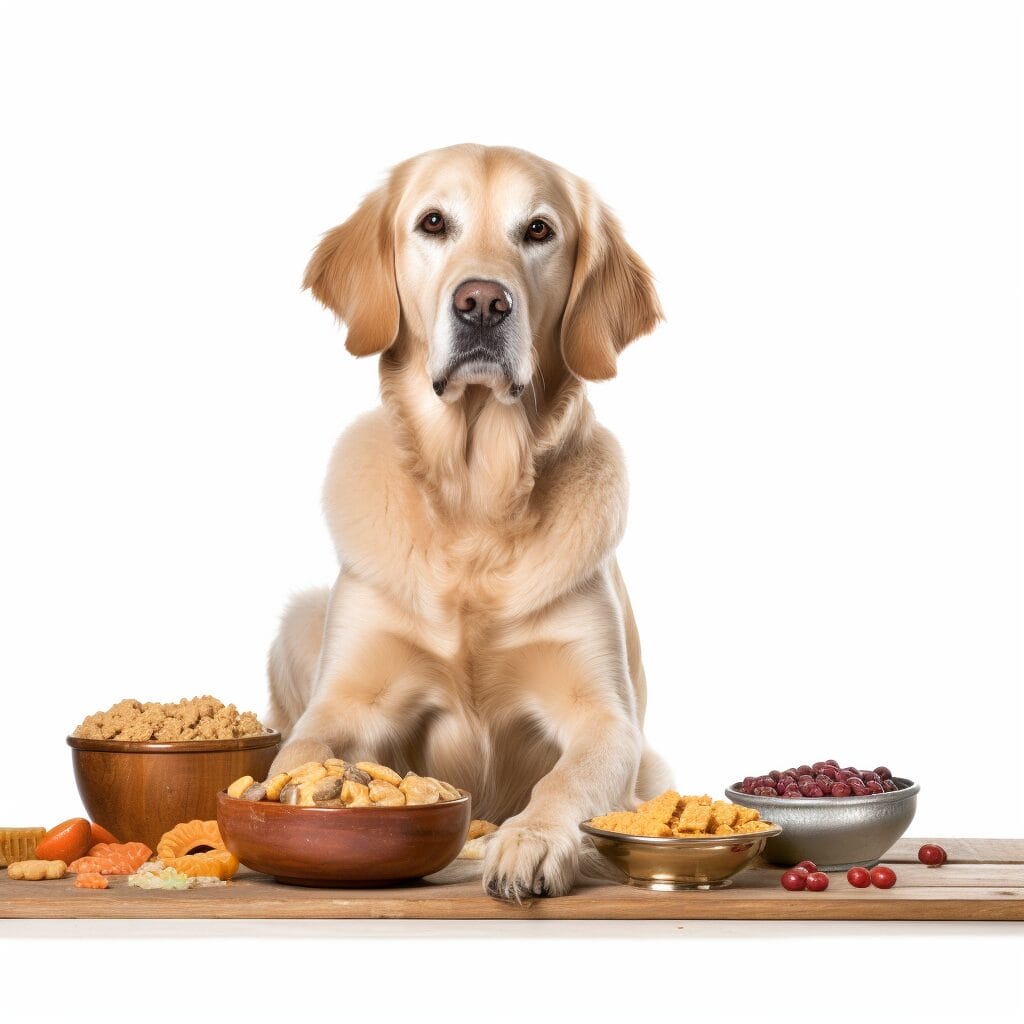
Energy Levels and Lethargy
As dogs age, they tend to have reduced energy levels. If your senior dog seems lethargic or less active than usual, it could be a sign that they need specialized food. This type of food is formulated to provide the right balance of nutrients to support aging bodies and help maintain their energy levels.
Senior dogs may also experience weight gain or loss as they age. If you notice any significant changes in your dog’s weight without alterations in their diet or exercise routine, it might be time to consider switching to senior dog food.
Dental Issues and Digestive Problems
Dental issues can become more prevalent as dogs get older. They may develop gum disease, tooth decay, or other dental problems that can make it difficult for them to chew regular kibble effectively. In such cases, specialized dog food with softer textures or specific dental care properties can help address these issues.
Moreover, aging dogs are prone to digestive problems such as constipation, diarrhea, or reduced appetite due to gastrointestinal sensitivities. Therefore,senior-specific dog food, which often contains easily digestible ingredients and added fiber for digestive health support, can be beneficial for addressing these concerns.
Coat Quality and Skin Condition
Changes in coat quality or skin condition could indicate underlying nutritional deficiencies in senior dogs. Dullness of the coat, excessive shedding, dry skin patches, or flakiness might suggest that your senior dog’s current diet is not meeting their specific needs adequately.
In some instances where a senior dog has been diagnosed with certain medical conditions like kidney disease or arthritis , special dietary considerations are necessary . In those cases , specialized diets designed specifically for managing those conditions should be considered .
Transitioning Your Dog to a Senior Diet
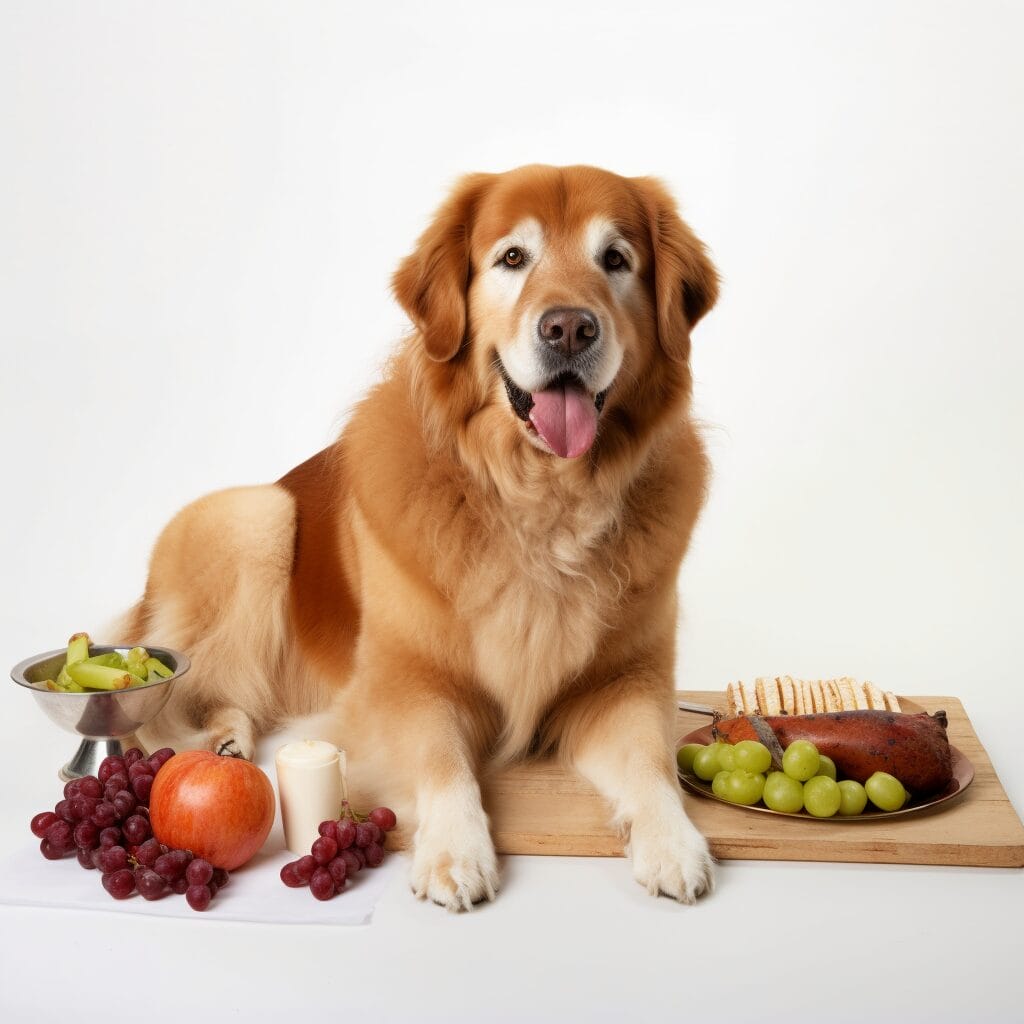
Gradual Transition
When switching your senior dog’s diet, it’s crucial to do so gradually over 7-10 days. This gradual transition helps prevent any digestive upset that may occur when introducing new food. Start by mixing a small amount of the new senior dog food with the current adult formula.
It is essential to closely monitor your senior dog’s response throughout this transition period. Keep an eye on their stool consistency and energy levels as you make the dietary change. Any drastic changes in these areas could indicate that the new food isn’t agreeing with them.
Consultation with Veterinarian
Consulting with a veterinarian before making any significant changes to your senior dog’s diet is highly recommended. A vet can provide valuable guidance on how best to switch your dog’s diet, taking into account factors such as their specific breed, age, and overall health.
Seeking professional advice ensures that you are making informed decisions about what is best for your furry companion during their later years. Veterinarians can offer tailored recommendations based on individual needs and potential health concerns that may arise during this life stage.
Essential Nutrients for Aging Canines
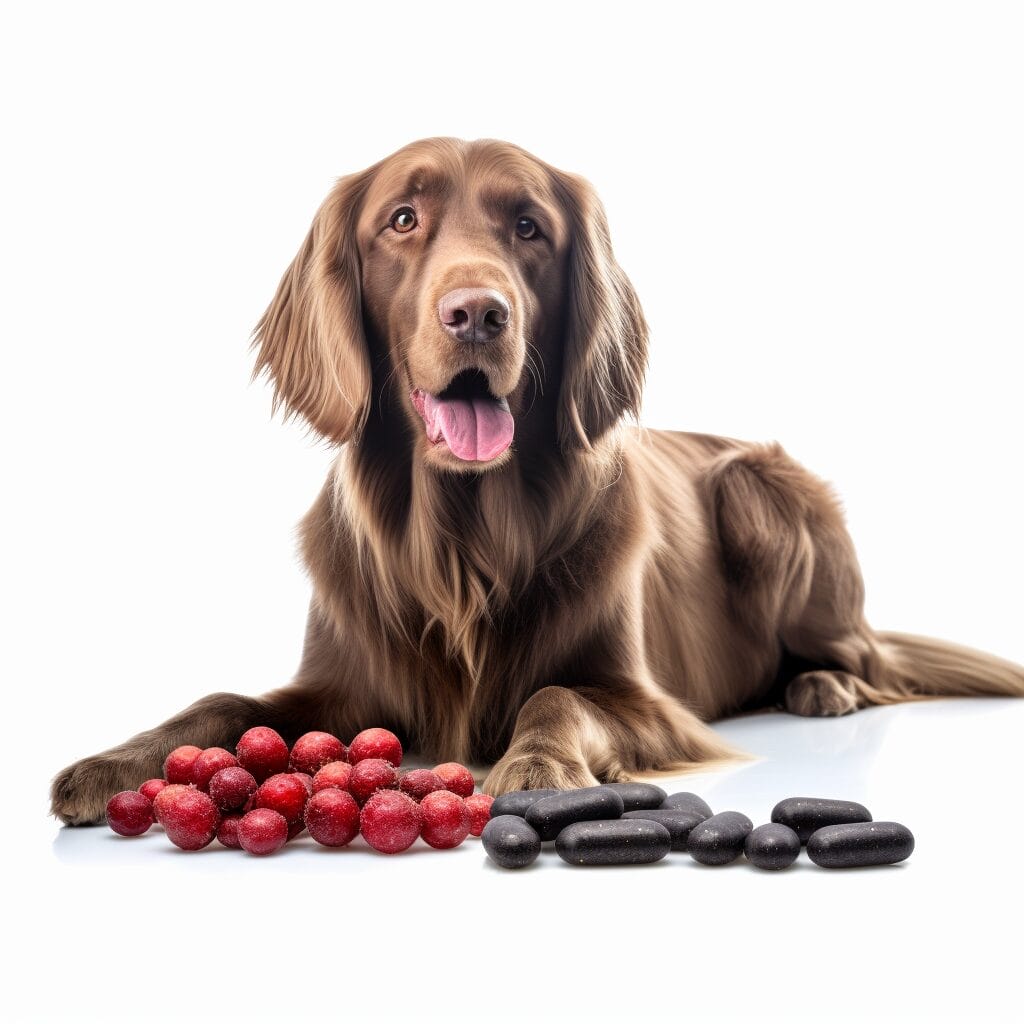
Omega-3 Fatty Acids
Omega-3 fatty acids are crucial for the joint health and cognitive function of senior dogs. These essential nutrients help reduce inflammation, alleviate arthritis symptoms, and support brain health in aging canines. Senior dog foods enriched with omega-3 fatty acids from fish oil or flaxseed can aid in maintaining your older dog’s mobility and mental acuity.
Senior dogs may benefit from supplements containing omega-3 fatty acids to address specific age-related issues such as joint stiffness and cognitive decline. For instance, incorporating fish oil into their diet can provide them with the necessary dose of these beneficial fatty acids.
Antioxidants like vitamins E and C also play a vital role in supporting the immune system and reducing cellular damage in senior dogs. These antioxidants help combat free radicals that contribute to aging-related diseases, providing an extra layer of defense against age-related ailments.
Adequate Fiber Content
Adequate fiber content is another essential component for aging dogs’ diets as it aids in digestion and helps manage weight. As dogs grow older, they may experience digestive issues or weight gain due to decreased activity levels. Therefore, senior dog food formulations with added fiber can promote healthy digestion while preventing excessive weight gain.
Incorporating ingredients rich in natural fibers such as sweet potatoes or pumpkin into their diet can assist in regulating bowel movements and promoting overall digestive wellness.
Managing Health Conditions with Senior Dog Diets
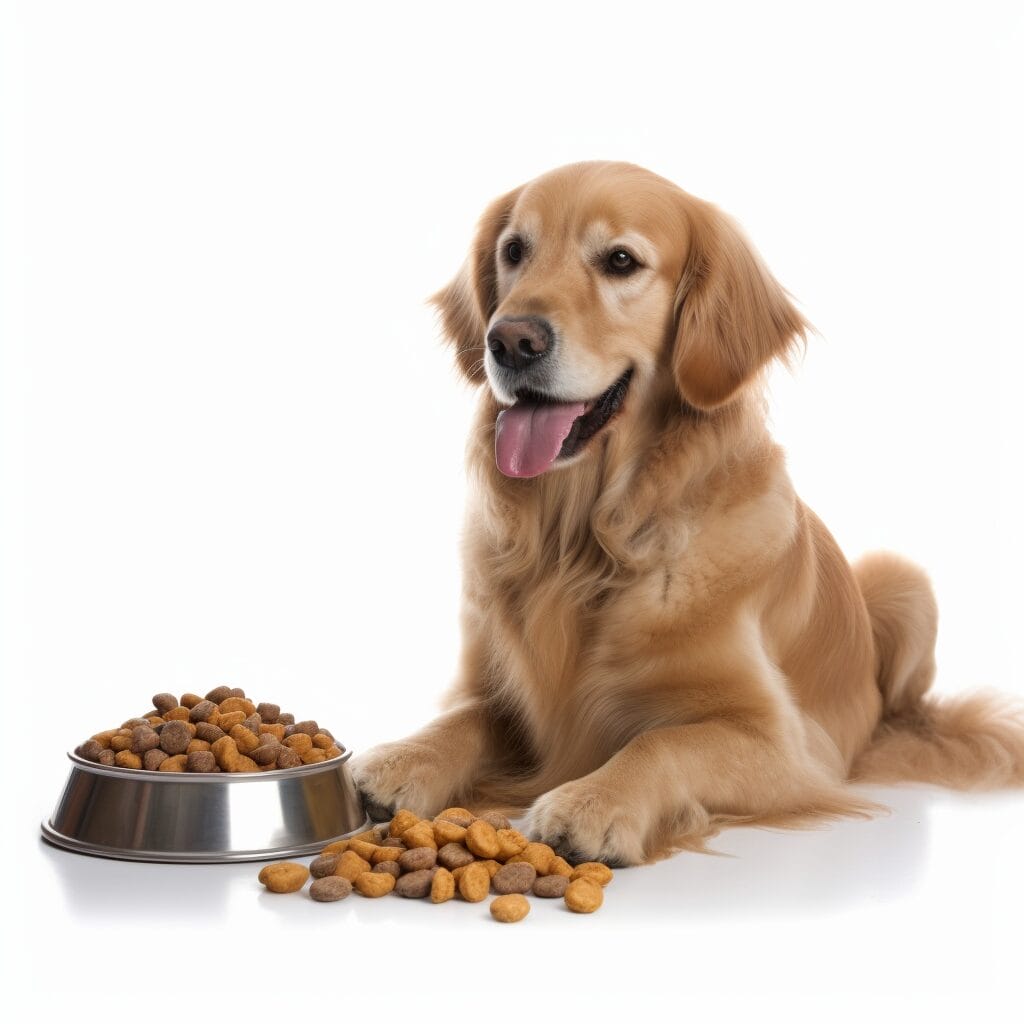
Supporting Kidney Function
Older dogs are prone to health conditions such as arthritis, diabetes, and kidney disease. Specialized senior dog diets play a crucial role in managing these conditions. Controlled levels of phosphorus and sodium in senior dog food are vital for supporting kidney function in aging canines. These controlled levels help reduce the risk of further complications related to kidney disease.
Senior dogs may develop kidney issues as they age, making it essential to provide them with a diet that supports their renal health. High-quality senior dog food contains the right balance of nutrients, including controlled phosphorus and sodium levels, which is beneficial for older dogs with compromised kidneys. By maintaining these controlled levels, senior dog foods help alleviate stress on the kidneys while providing necessary nourishment.
For example:
- Some specialized senior dog diets contain reduced protein content to manage specific kidney conditions.
- The controlled phosphorus content in senior dog food helps prevent further damage to the kidneys.
Maintaining Muscle Mass
High-quality protein sources play an important role in maintaining muscle mass while managing certain health conditions in aging canines. As dogs grow older, they may experience muscle loss or weakness due to various health issues such as arthritis or other age-related ailments. However, incorporating high-quality proteins into their diet can aid in preserving muscle mass and strength.
Older dogs need adequate protein intake to support their overall body condition and maintain healthy muscles despite any existing health concerns they might have developed over time. This becomes especially important when dealing with diseases like arthritis that can impact mobility and lead to decreased physical activity.
For instance:
- Senior dog diets rich in high-quality proteins from sources like chicken or fish help support muscle maintenance.
- Adequate protein intake through specialized senior diets aids older dogs’ bodies in repairing tissues damaged by certain health conditions.
Balancing Protein and Caloric Intake for Older Dogs
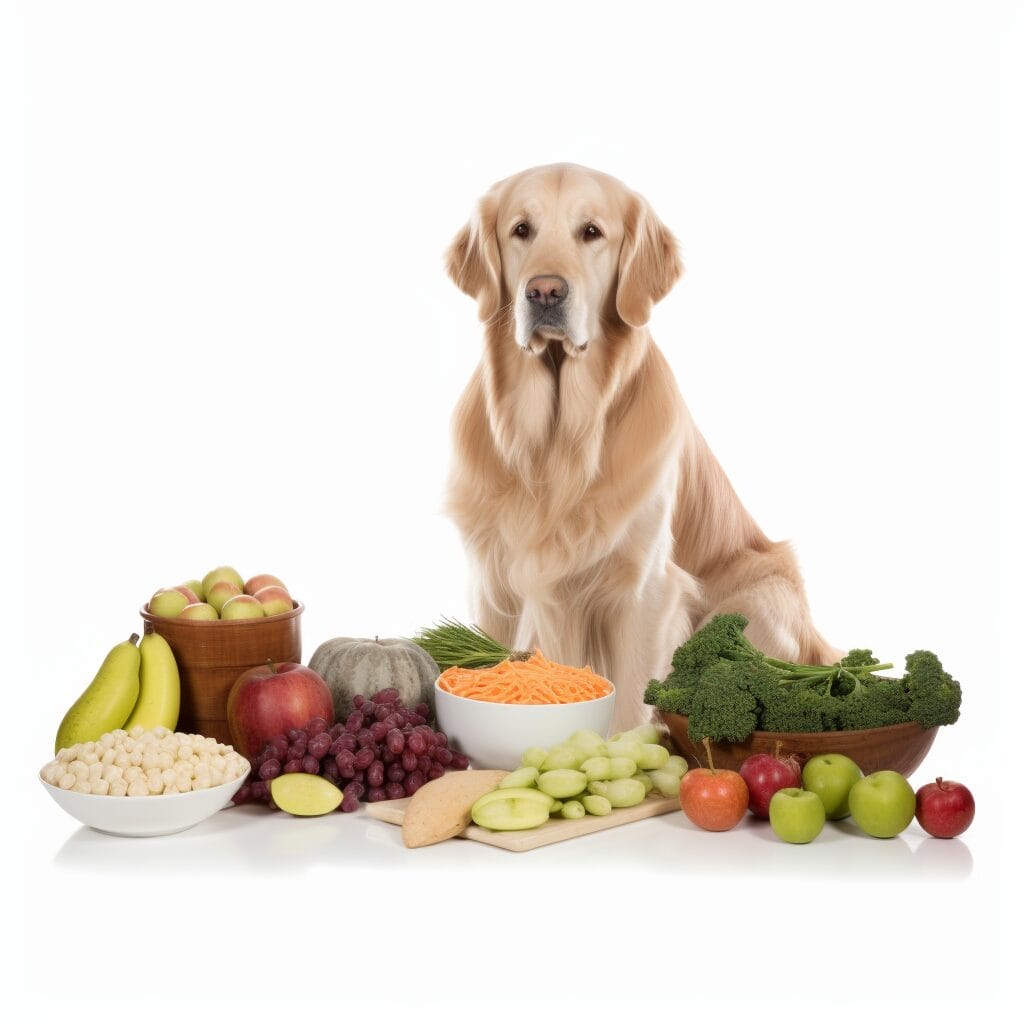
Adjusting Protein Intake
Senior dogs need to maintain their muscle mass as they age. By adjusting their protein intake, we can help prevent muscle loss. This is essential in managing the body composition of older dogs. Senior dog foods with moderate protein levels are beneficial for aging dogs with reduced activity. These foods provide the necessary amino acids to support muscle health without overloading the kidneys.
For example, a senior dog food containing around 25-30% protein would be suitable for an older dog with decreased activity levels. This level of protein allows them to maintain lean body mass while not putting excess strain on their organs.
Managing Caloric Intake
Caloric intake plays a crucial role in ensuring that senior dogs stay at a healthy weight. As dogs age, their metabolism tends to slow down, making it easier for them to gain weight if their calorie intake isn’t managed properly.
It’s important to tailor the caloric intake based on each individual dog’s activity level and metabolism. For instance, an older dog who still enjoys daily walks may require more calories compared to a senior pup who prefers lounging around most of the time.
To illustrate, a small breed senior dog who is less active might only need about 300-400 calories per day whereas a larger breed with higher energy levels could require up to 1500 calories daily.
The Importance of Palatability in Senior Dog Food
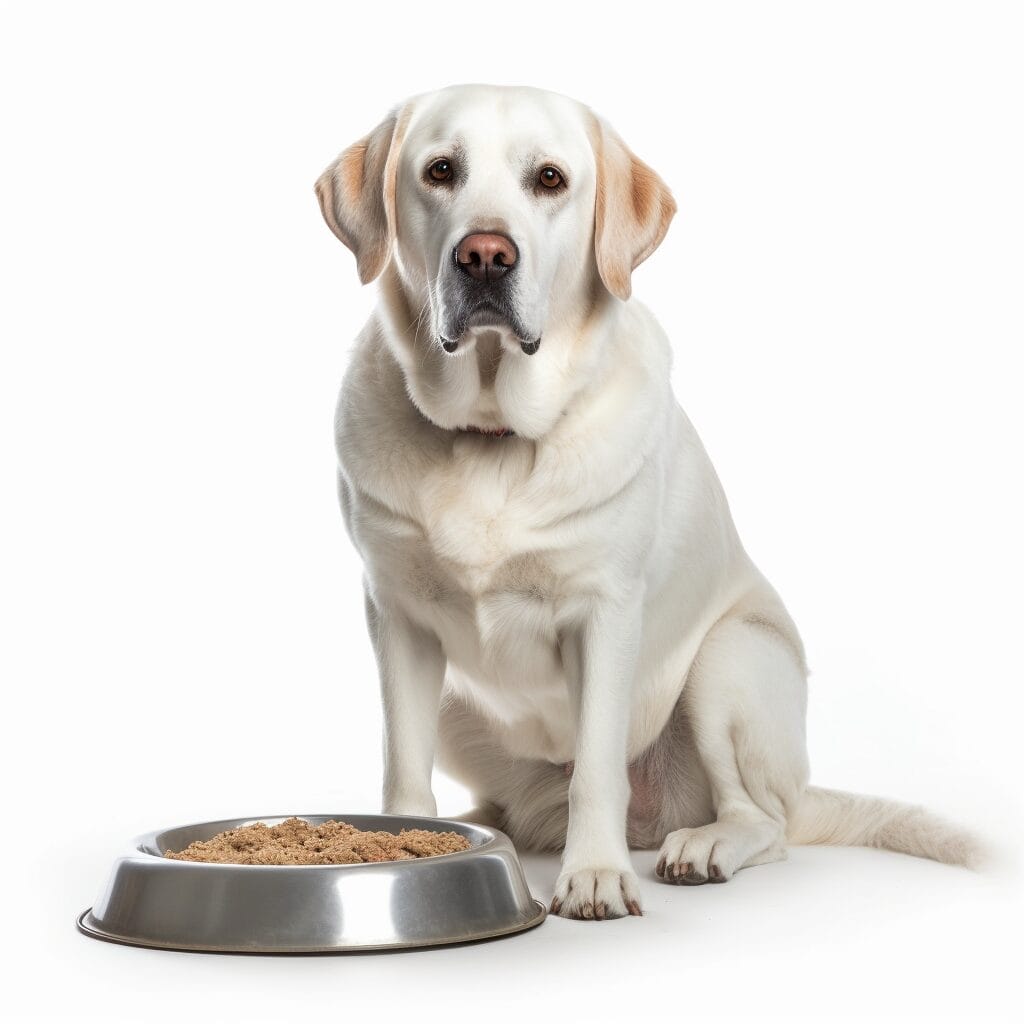
Encouraging Appetite
Enhanced palatability in senior dog food is crucial for encouraging appetite in aging dogs with reduced senses of smell and taste. As dogs age, their sense of smell and taste diminish, making it challenging for them to find interest in their regular meals. This decline can lead to a decrease in food intake, which may result in malnutrition or weight loss. Therefore, senior dog food with heightened palatability plays a vital role in stimulating the appetite of older dogs.
Aromatic ingredients are often incorporated into senior dog food formulas to stimulate interest in meals for senior dogs experiencing decreased appetite. For instance, adding flavors such as chicken or beef can entice senior dogs who might otherwise be disinterested due to diminished olfactory abilities. These aromatic components help create an enticing mealtime experience that encourages older dogs to consume the necessary nutrients they need for optimal health.
Catering to Preferences
Texture and flavor variations play a significant role. Just like humans, senior dogs develop specific tastes over time, and providing them with diverse textures and flavors ensures that they remain interested in their meals. For example, some senior dog foods offer both wet and dry options to cater to different preferences among aging pets.
Moreover, senior-specific formulas often include softer kibbles or wet textures that are easier on aging teeth or sensitive gums. These variations not only accommodate the changing dental needs of older dogs but also contribute towards maintaining their enjoyment during meal times.
Expert Tips for Feeding Strategies in Senior Dogs
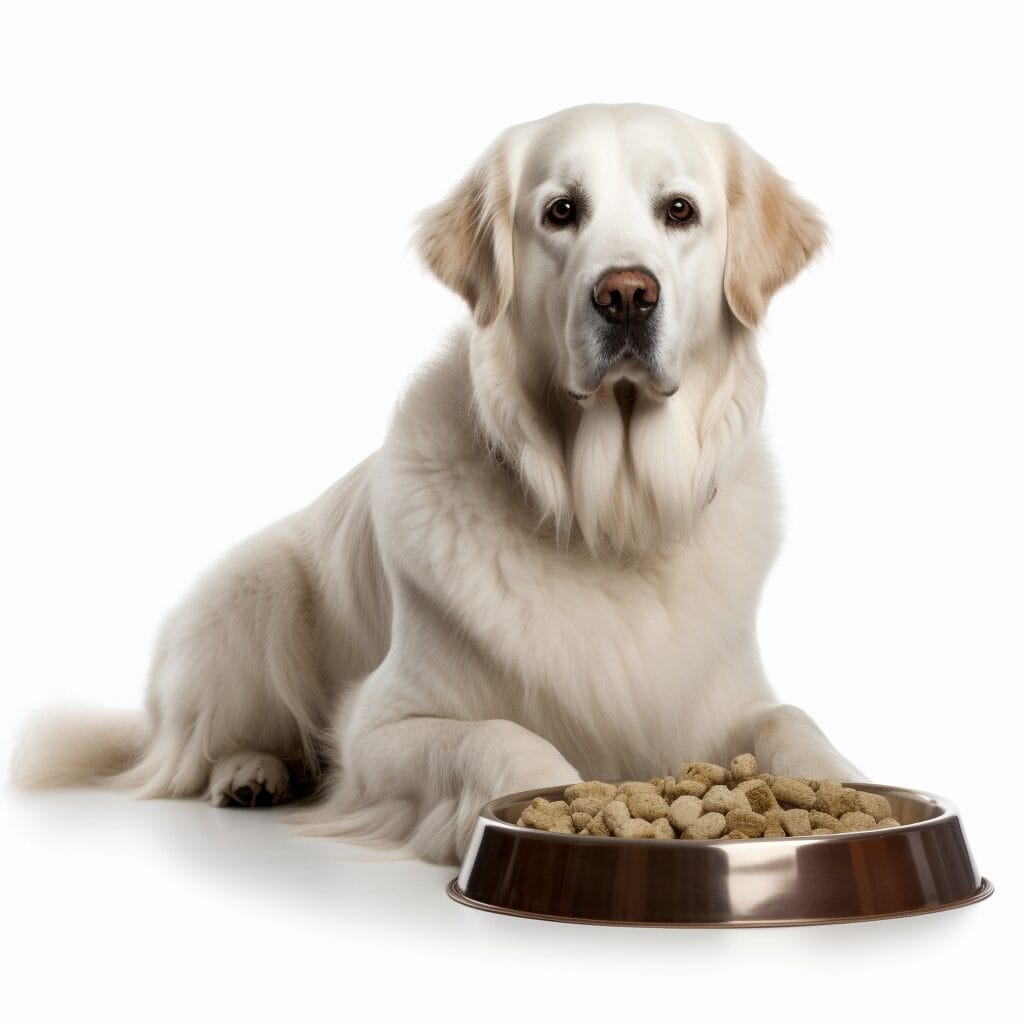
Smaller, More Frequent Meals
Senior dogs often experience decreased digestive capabilities, making it essential to offer smaller, more frequent meals. This approach helps ease digestion and prevents discomfort that may arise from consuming larger portions in one sitting. By breaking down their daily food intake into multiple smaller meals, senior dogs can better absorb nutrients and maintain stable energy levels throughout the day.
For instance:
- Instead of two large meals a day, consider feeding your senior dog three or four smaller portions.
- Monitor their response to this change and adjust portion sizes accordingly based on their comfort level and overall well-being.
Regular Monitoring of Body Condition Score
Regular monitoring of body condition score is a powerful tool in ensuring that senior dogs receive the appropriate amount of food tailored to their individual needs. As aging can lead to changes in metabolism and activity levels, keeping track of their body condition allows for adjustments in feeding amounts as necessary. Maintaining an optimal body condition score is crucial for managing weight-related health issues commonly associated with older dogs.
Consider this:
- Keep an eye on your senior dog’s physique by regularly assessing their body condition score.
- Make necessary adjustments to their diet based on any noticeable changes in weight or muscle mass over time.
Incorporating Dental Health Into Feeding Strategies
When addressing the nutritional needs of senior dogs, it’s important to incorporate dental health into feeding strategies. Choosing kibble size that suits their dental capabilities or providing dental treats can contribute significantly to maintaining good oral hygiene as they age. Proper dental care not only supports overall health but also enhances the palatability of food options for senior dogs.
Here’s how you can integrate dental health considerations:
- Opt for specially formulated kibble designed for senior dogs with dental concerns.
- Introduce dental treats approved by veterinarians as part of your senior dog’s daily routine.
Final Remarks
Congratulations on making it through the essential guide to senior dog food! By now, you understand the crucial role that specialized nutrition plays in supporting the health and well-being of your aging canine companion. As you navigate the world of senior dog diets, remember to stay attuned to your furry friend’s individual needs and consult with a veterinarian for personalized recommendations. Whether it’s managing health conditions, transitioning to a new diet, or ensuring the right balance of nutrients, your proactive approach can significantly enhance your senior dog’s quality of life.
Now armed with valuable insights and expert tips, take the next step in providing the best care for your senior dog. Keep exploring and learning about how you can optimize their diet to help them thrive in their golden years. Your commitment to understanding and meeting their nutritional requirements will undoubtedly contribute to many more happy and healthy moments together.
Frequently Asked Questions
Do senior dogs need a special diet?
Yes, senior dogs often require specialized diets with adjusted levels of nutrients to support their aging bodies. Senior dog food is formulated to address the specific needs and health concerns of older canines, such as joint health and weight management.
What are the key nutritional differences in senior dog food?
Senior dog food typically contains lower calories to accommodate decreased activity levels while providing higher levels of certain nutrients like fiber, antioxidants, and omega-3 fatty acids for joint support and overall health maintenance.
How do I know if my senior dog needs specialized food?
Keep an eye out for signs such as weight changes, dental issues, digestive problems, or reduced mobility. Consulting with your veterinarian is crucial to determine if your senior pup would benefit from a switch to specialized senior dog food.
Can I transition my dog to a senior diet gradually?
Yes, transitioning your furry friend’s diet slowly over 7-10 days can help prevent digestive upset. Start by mixing small amounts of the new food into their current meals and gradually increase the proportion over time.
What essential nutrients should be included in a diet for aging canines?
A balanced diet for older dogs should include adequate protein for muscle maintenance and repair, healthy fats for energy and skin/coat health, as well as supplements like glucosamine and chondroitin to support joint function. Always consult with your vet before making significant dietary changes.

